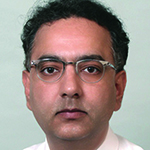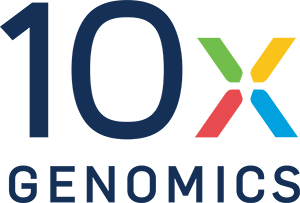Accelerating drug discovery using novel screening technologies
22 September 2021
Shares
- Like
- Digg
- Del
- Tumblr
- VKontakte
- Buffer
- Love This
- Odnoklassniki
- Meneame
- Blogger
- Amazon
- Yahoo Mail
- Gmail
- AOL
- Newsvine
- HackerNews
- Evernote
- MySpace
- Mail.ru
- Viadeo
- Line
- Comments
- Yummly
- SMS
- Viber
- Telegram
- Subscribe
- Skype
- Facebook Messenger
- Kakao
- LiveJournal
- Yammer
- Edgar
- Fintel
- Mix
- Instapaper
- Copy Link
Explore the latest developments in screening technologies and how drug discovery has changed during the past decades in our webinar with 10X Genomics.
About this webinar
Billions of dollars are spent every year on drug discovery processes. Of the many compounds that are selected as leads, only a small proportion are successfully progressed to the candidate and clinical phases. A major cause of attrition is sub-optimal toxicological and pharmacological characteristics of compounds. It is estimated that around half of candidates fail in clinical trials due to lack of efficacy and undesirable toxicity. A major contributing factor to this is the use of assay systems that lack physiological relevance. Therefore, the development of physiologically relevant assays and their use in screening would be expected to increase the overall efficiency of the drug discovery process.
In this webinar, Dr Sheraz Gul from the Fraunhofer Institute discusses the latest developments in screening technologies and outline case studies that showcase these advancements.
Learning outcomes of this webinar
- Discover how drug discovery has changed during the past decades
- Hear a description of the latest assay technologies
- Listen to case studies on how new methods have accelerated drug discovery.
Our speaker


Dr Sheraz Gul, Head of Assay Development & Screening, Fraunhofer Institute
Dr Sheraz Gul is an expert in drug discovery, having gained experience during employment in academia at the University of London, in industry at GlaxoSmithKline (GSK) and the largest European applied research organisation, the Fraunhofer Institute. He is also a visiting professor and scientific co-founder of Transcriptogen Ltd. Sheraz has co-ordinated work packages in multiple assay development, screening and hit-to-lead projects. He has co-authored over 60 peer-reviewed papers, the Enzyme Assays: Essential Data handbook and organised 46 global drug discovery workshops and trained 880 scientists.



